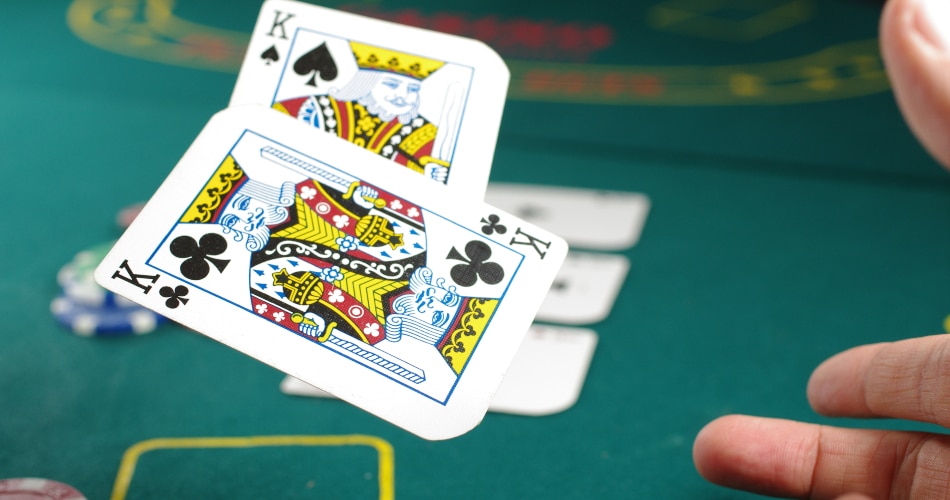
Casinos across the UK have proposed plans to ban the sale of alcohol on their venues in a desperate attempt to avoid potential closures.
First Minister Nicola Sturgeon announced this week a slew of new restrictions for Scotland which come into effect today (October 9th). Under the new restrictions, casino and hospitality venues will be required to close at 18:00.
Meanwhile, it’s been widely reported that Prime Minister Boris Johnson will be announcing a new three-tier system for local lockdowns. Under the system, some hospitality venues such as casinos may be required to close for weeks at a time in select regions in an attempt to slow infection rates.
Casinos across England and Wales have expressed concern that closures across the rest of the UK would prove “disastrous” for the industry, particularly since venues are struggling with the UK’s recent 10 PM curfew which requires venues to close despite most casinos doing over 70% of their trade after that time.
Following the announcement of the 10 PM curfew for hospitality venues, Michael Dugher, the Chief Executive of the Betting and Gaming Council (BGC), said that Johnson might have “signalled the death knell for the casino industry”, particularly as casinos only recently reopened and have been struggling to reach the footfall venues experienced prior to lockdown.
To avoid said closure, and to prevent further job losses within the gambling industry, Michael Dugher has written to MPs urging them to lobby the government to allow the venues to remain open.
As reported by CasinoBeats, Dugher writes in the letter: “Casinos have already proved, thanks to their world-class track and trace systems, the use of Perspex screens, hand sanitisers and strict social distancing rules, that they are COVID-secure according to Public Health England.
“There are relatively few casinos, we know that their impact on COVID is negligible and they have in fact operated perfectly safely since reopening in August. There are no public health rounds to order their closure now.”
He continues: “Ministers need to understand that casinos are not pseudo-nightclubs or places where young people go to drink. Nevertheless, they are willing to reduce their risk levels even further by refusing to serve alcohol, which the government seems to think is another factor in the spread of the virus.
“In light of all of this, I would urge ministers to be reasonable and allow casinos to remain safely open and continue to play their part in raising desperately-needed tax revenues for the Treasury, whilst also stopping the spread of the coronavirus.”
Earlier this week, a spokesperson for the BGC addressed the new COVID restrictions announced by First Minister Nicola Sturgeon and described them as a “huge blow” to the casino industry but praised the announcement of additional funding support for all affected businesses.
In a statement, the spokesperson said: “This news will come as a huge blow to casinos in Scotland, which only opened their doors in August and who have been trying to rebuild their businesses since then.
“However, we welcome the First Minister’s announcement of financial help for the hospitality sector, and call on the Scottish Government to ensure it gets to the businesses that need it most – including casinos – as quickly as possible.”
As the Betting and Gaming Council have campaigned to keep casinos open and prevent closures, the firm has been busy helping to drive up standards. In August, the BGC announced new measures to prevent underage gambling exposure.
The new measures, which came into effect on October 1st, requires all BGC members to ensure that their sponsored and paid social media advertisements are only targeted to people aged over 25.
The advertisements must also include safer gambling messages, and users on YouTube will have to possess an age-verified account to view gambling advertisements.
More recently, the BGC unveiled its new code of conduct regarding the design of video slots. As part of the new measures, video slots are now required to have a minimum game speed of 2.5 seconds per spin.
The BGC’s measures also include a ban on the Turbo Play slot feature which allows users to speed up their game, a ban on multi-slot play which allows users to play multiple games at the same time, as well as mandatory checks on players’ activity to prevent gambling-related financial harm.
The BGC’s campaigning doesn’t end there as it’s introduced several other rules. In 2019, the BGC was behind the implementation of a whistle-to-whistle ban on TV gambling advertisements during televised sports games.
Under the ban, gambling ads cannot be shown between five minutes before the game and five minutes after it ends. In a recent post, the BGC praised the ban for helping lower children’s’ exposure to gambling.
The UK Gambling Commission has also been working to improve standards within the gambling industry. Earlier this month, the Commission announced a series of new rules to “stamp out” VIP malpractice, requiring operators to carry out additional security and financial checks, as well appoint officials to oversee VIP schemes.
The UK’s regulatory body also recently announced a partnership with Facebook to publish new guidance informing users of how they can limit the number of gambling-related advertisements and messages they see on the platform.
The Commission’s guidance informs users on how they can adjust safety settings to change what they see, how they can hide specific items from their newsfeeds, and restrict certain advertisers from displaying ads.
Earlier this year, the Commission made a gigantic change within the gambling industry by banning the use of credit cards with brick-and-mortar gambling as well as online gambling. The ban forced all gamers to use an alternative payment method and was part of a move to clamp down on the number of people suffering from gambling-related harm.